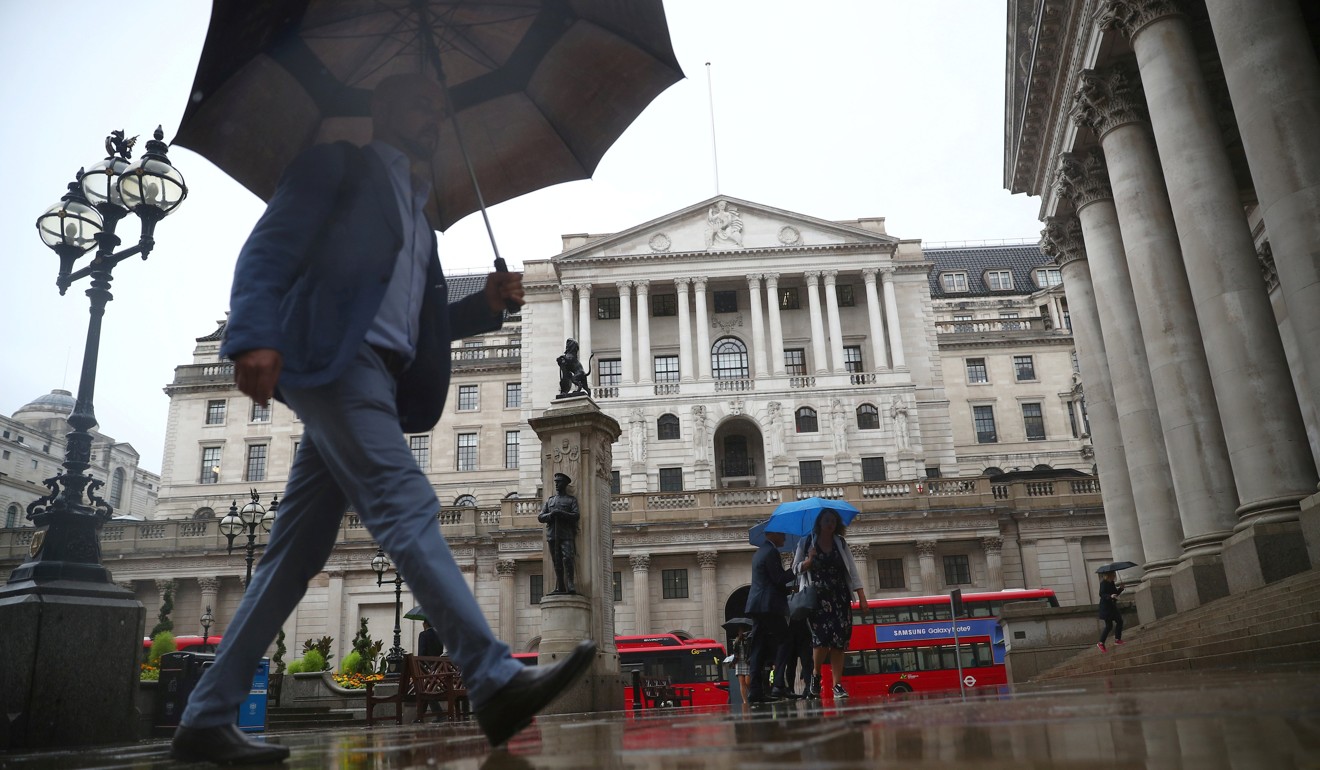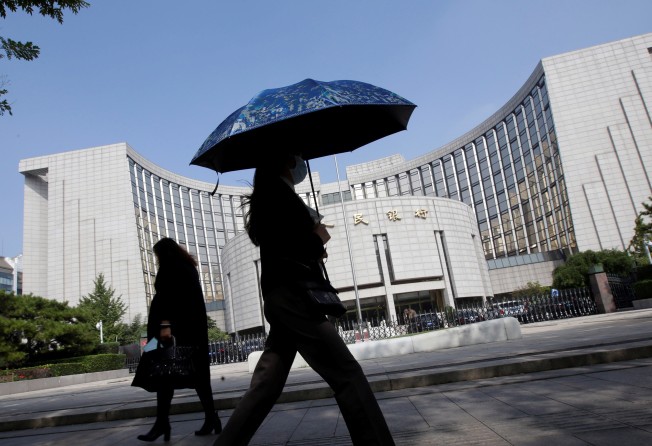
PBOC renews currency backup from UK and Japan to defend yuan
- China central bank renews currency swap deal with UK of 350 billion yuan (US$50 billion)
- UK swap renewal came just two weeks after a similar credit line of 200 billion yuan with Japan

China and Britain renewed their bilateral local currency swap scheme for another three years on Monday, two weeks after Beijing signed a similar deal with Japan, in a sign that Beijing is securing backup in defending its depreciating currency.
These bilateral arrangements allow the People’s Bank of China to use its own currency as collateral to borrow the currency of the other country within agreed limits. In the renewed deal with the UK, for instance, China’s central bank can obtain up to 40 billion pounds (US$64.51 billion) from the Bank of England while the BOE can borrow US$350 billion yuan (US$50 billion) from China.
The deals can serve Beijing’s goal of boosting the supply of yuan to offshore markets to promote its international use as well as securing a supply of hard currencies in case of an emergency. Since Beijing sits on the world’s largest foreign reserve stockpile of US$3.053 trillion, the bilateral swap deals with other countries serve as insurance for adequate access to liquidity in short notice.
While China has signed such deals with more than 30 central bank authorities, including the European Central Bank, Hong Kong Monetary Authority and South Korea’s central bank, with a combined quota of more than 3 trillion yuan, China’s central bank has actually borrowed only 892 million yuan worth of various foreign currencies as the end of September and lent 32.5 billion yuan in return, according to the central bank’s quarterly monetary policy report.
But concern is growing that there is only limited room for further policy stimulus and other measures to stabilise the sliding yuan and economy before any progress towards a deal can be made with the US.
The yuan has tumbled 11 per cent against the dollar since March. It was changing hands at 6.9573 against the dollar on Tuesday, drifting closer toward the psychologically important level of 7.00 per dollar.
“If China were to face a financial crisis that would require huge amounts of funds, then the swaps are another channel that could help out with the strong selling pressure in the yuan,” said Kevin Lai, Asia ex-Japan equity research chief economist at Daiwa Capital Markets.
Reflecting the PBOC’s concerns over the potential for an unforeseen financial market shock and capital outflows, it has been installing other precautions to support the currency since August.
The PBOC has made shorting, or betting against the currency, more expensive. It has also redeployed the “counter-cyclical factor” in the calculation of the yuan daily fixing rate, meaning it can decide by fiat what the midpoint of the yuan trading range should be on any given day. The central bank sold offshore PBOC bills for the first time in Hong Kong on November 7, extending its monetary policy beyond the mainland.

China resumed using foreign currency for direct intervention after pausing during the past year to buoy the value of the yuan’s exchange rate. Authorities sold close to US$14 billion in foreign reserves in October after selling US$17 billion in September to buy the yuan in the currency market.
Chinese President Xi Jinping and US President Donald Trump are expected to meet at the G20 summit in Argentina at the end of the month, and any progress, or lack thereof, towards ending the US-China trade war is expected to affect capital flows in Asia. The yuan is expected to weaken moderately around the summit if there are no signs of progress towards a deal and if tensions continue to escalate.
China and Britain signed the original yuan-pound swap line for a maximum value of 200 billion yuan in June 2013, which was subsequently renewed and increased to 350 billion yuan in October 2015. The swap has never been used.
Last month, China and Japan signed a currency swap deal worth 200 billion yuan after five years without one as Asia’s two biggest economies look to further build better relations, as each seeks to mitigate the aggressive US trade policy.